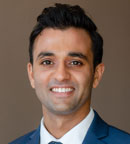
Many of us chose ophthalmology because we were captivated by the artistry and precision of its surgeries. Do you remember the first time you watched a case in the OR, marveling as the attending surgeon completed it with seemingly effortless skill? That moment often solidifies our commitment to this field. But as young ophthalmologists, we quickly learn that the journey to mastery is anything but effortless.
Residency and fellowship training immerse us in an apprenticeship model where graded autonomy fosters confidence under the guidance of our mentors. Although simulators are invaluable tools, the real learning happens in the OR, where the mantra “There’s no such thing as a simple surgery” resonates deeply.
Mistakes are inevitable, especially early in our careers. How we choose to manage surgical complications and grow from them will define us not just as surgeons, but also as learners. To delve into this topic, we consulted Dr. Elena Bitrian, a pediatric and glaucoma specialist at Bascom Palmer Eye Institute and director of surgical education for the residency program. Her framework for transforming setbacks into teaching moments revolves around 3 critical phases: before, during, and after surgery.
Failing to Plan Is Planning to Fail
The best way to manage complications is to prevent them from happening in the first place. In preparing for the case, be well informed about the patient’s history, prior procedures, and anatomy. Visualize each step, but also mentally prepare for the complications you may encounter (ie, have a Plan B ready). In addition, have all of the tools you might need, such as iris expander devices, cutter scissors, etc. When the case starts, stay present! The current surgical step is the only one that matters. Be mindful of how the eye is behaving throughout the surgery so that you may be able to mitigate a looming complication.
Mistakes Happen, Now What?
No matter how prepared you are, complications will happen. So, now what? The first step is to analyze the case by watching the surgical recording, paying close attention to the decisions you made and gently critiquing your performance. If you could redo the case, would you still make the same decisions? If the answer is no, then you have an opportunity for growth! Once you have identified areas for improvements, watch other surgeons and use simulation models to strengthen both your mental map and muscle memory of the procedure.
Another useful tip is to talk about the setback with mentors and peers to further identify steps to work on. Dr. Bitrian urges her trainees to remember that they are a work in progress to become the best surgeon they can be. Framing setbacks as growth opportunities as opposed to criticisms of your ability is crucial to develop your skillset.
Look at Surgery as a Sports Match
Just as athletes rely on practice reps, visualization, and scouting reports before a game, as surgeons we can use surgical simulators, watch recordings, and learn the unique patient anatomy. Subsequently, the post-game analysis can be applied to our review of our surgical recordings to learn from the intraoperative decisions we made. Channel your inner athlete! The same attention to detail and growth mindset can and should be used to maximize each setback you are lucky to experience during training and early in your career. OM
Stay Ahead With Real World Ophthalmology
Real World Ophthalmology brings cutting-edge insights to early-career ophthalmologists. Don’t miss: “Tell Me Your Secrets: Villains Edition” (April 12, online)—sharing real world secrets from top experts with keynote speakers Dr. Jenny Lim and Dr. David Lockington; RWO Mock Oral Boards (April 17, online)—ultimate FREE oral board prep; and RWO After Dark: Lights, LASIK, Action! (April 26, Los Angeles)—a glamorous Hollywood-themed night where you’ll walk the red carpet, collect Walk of Fame stars, and learn from ophthalmology celebrities in true Tinseltown style! Register today: RealWorldOphthalmology.com










